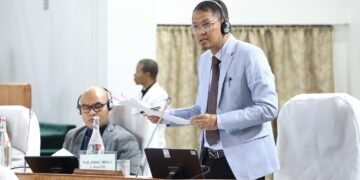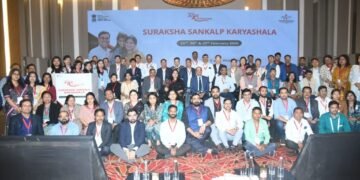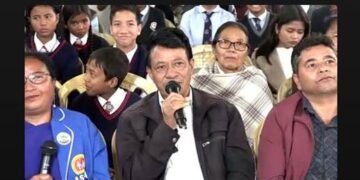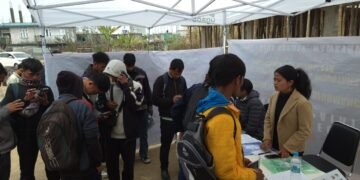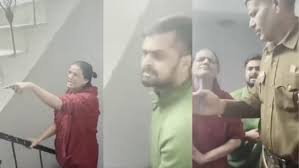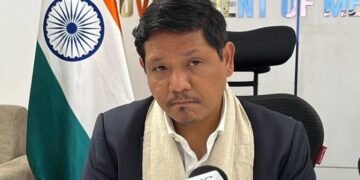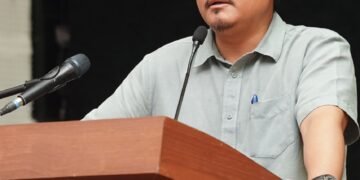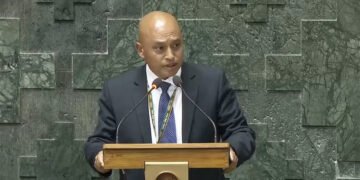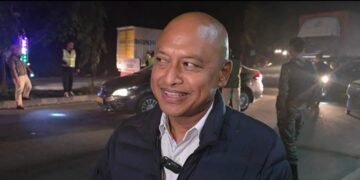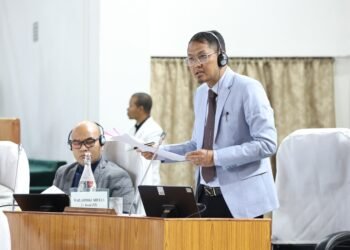The poll bugle has been sounded in the north-eastern states of Tripura, Meghalaya and Nagaland with the election commission announcing assembly polls in 180 seats across these states. As the stakes rise for the Bharatiya Janata Party (BJP) in the North East, it will be an interesting clash of the old guard versus the new.
In BJP-governed Tripura, polling will take place on February 16, followed by simultaneous polling on February 27 in Meghalaya and Nagaland, where the saffron party is currently a part of coalitions headed by regional veterans. Additionally, bypolls to six vacant assembly seats in the states of Arunachal Pradesh, Maharashtra, Tamil Nadu, Jharkhand and Bengal will take place on February 27. On the same day, the parliamentary constituency of Lakshadweep will also vote for a government.
Tripura’s trouble in alliance paradise
In Tripura, the BJP is in power with a local ally, the Indigenous People’s Front of Tripura (IPFT), and the stakes are the highest in this key state as the party aims to deepen its footprint with a bold new approach. After having made significant inroads in Tripura in 2018, the saffron party had put an end to the Left’s long rule, but had to remove Biplab Deb from the chief minister’s post in 2022 to thwart an anti-incumbency wave. The new Chief Minister, Dr Manik Saha, faces the challenge of growing fragmentation in the state unit and a tumultuous relationship with its closest ally, the IPFT.
As BJP stalwart Amit Shah recently flagged off the “Jana Vishwas Yatra” to mobilise support for the party, the opposing Congress and the Communist Party of India (Marxist) countered it with a joint rally in Agartala. The increasing presence of the All India Trinamool Congress (TMC) in the region can create some waves with former Congresswoman Sushmita Dev at its helm. Most of these national parties are also trying to chase the Tipraha Indigenous Progressive Regional Alliance or Tipra Motha for an alliance, which will be an interesting development to look forward to.
In Tripura, the key issue is undoubtedly the Citizenship (Amendment) Bill, 2016. This bill seeks to amend the Citizenship Act of 1955 to provide citizenship to illegal immigrants belonging to six minority religious communities from Bangladesh, Pakistan and Afghanistan. The ruling BJP is in favour of the bill, while the opposition Congress and the TMC are opposed to it. Other key issues include Tripura’s relatively low per capita income compared to other states, insurgency, infrastructural woes and high unemployment rate.
Meghalaya’s five-party battle
The alliance between the BJP and the National People’s Party (NPP) has been at loggerheads and earlier, the BJP had supported the Conrad Sangma-led NPP to form a government. Meghalaya has a legacy of political instability with constant changing of parties by the MLAs. According to the latest count, the Meghalaya Democratic Alliance (MDA) government had 33 seats — NPP 20, the United Democratic Party (UDP) 8, BJP 3 and the People’s Democratic Front (PDF) 2. In the opposition, the TMC has 8 seats and 19 seats are vacant.
At present, the BJP has decided to fly solo in Meghalaya as the party’s stance on the National Register of Citizens (NRC) and other allied issues had come in conflict with that of its alliance partner. The BJP is not a major player and is demonetisation and the goods and services tax (GST). The Congress is hoping to benefit from this anger.
The Garo and Khasi division in the state affects the voting patterns. With about 75 per cent population being Christian and about 12 per cent population Hindu, the Congress has enjoyed a hold over the Shillong region and the NPP has had a hold over the Tura region. In such a situation, the BJP’s decision to go solo is a bold step, and it remains to be seen if it can manage to regain its hold in the urban Shillong region. The breaking away of Mukul Sangma along with 11 other MLAs from Congress to the TMC earlier has cast a heavy shadow over the elections. In conclusion, Meghalaya will witness a battle between the BJP, Congress, UDP, NPP and the TMC.
Nagaland’s Frontier Demands
In Nagaland, meanwhile, the key issue is peace and security. The ruling Nationalist Democratic Progressive Party (NDPP) has been trying to negotiate a peace agreement with various militant groups, and the outcome of these negotiations will be a key factor in the elections. At present, the ruling coalition, the United Democratic Alliance (UDA), has the NDPP, the BJP and the Naga People’s Front (NPF). Neiphiu Rio of the NDPP is the Chief Minister.
Partial lifting of the AFSPA (the Armed Forces (Special Powers) Act) can turn the situation favourable to the saffron party; like in 2018 when it had won 12 seats. The state has also been facing demands from seven tribes for the creation of a separate “Frontier Nagaland” by carving out 16 districts. Very recently, the central government recently held meetings with the Eastern Nagaland People’s Organisation (ENPO) to find a way out of this problem.
While the NPP faces accusations of corruption, the influence of the tribal groups is being felt across the region. The tribal groups have upped the ante on their demand for a separate state. The Rising People’s Party (RPP) is a new entrant to the political and electoral space in Nagaland.
The state of the North East is in a precarious position as we head into elections in 2023. The region has been neglected by the central government for years. The old guard is tired of being ignored, and they’re ready to take on the establishment. These states further assume significance in the context of the upcoming Lok Sabha elections, as the seven states and Assam account for 25 Lok Sabha constituencies. In the run-up to the 2024 general elections, it will be a trial by fire for the BJP to continue dealing with regionalism and build alliances, while the opposition’s capacity to endure will be tested.
(The author can be reached at dipaknewslive@gmail.com)

